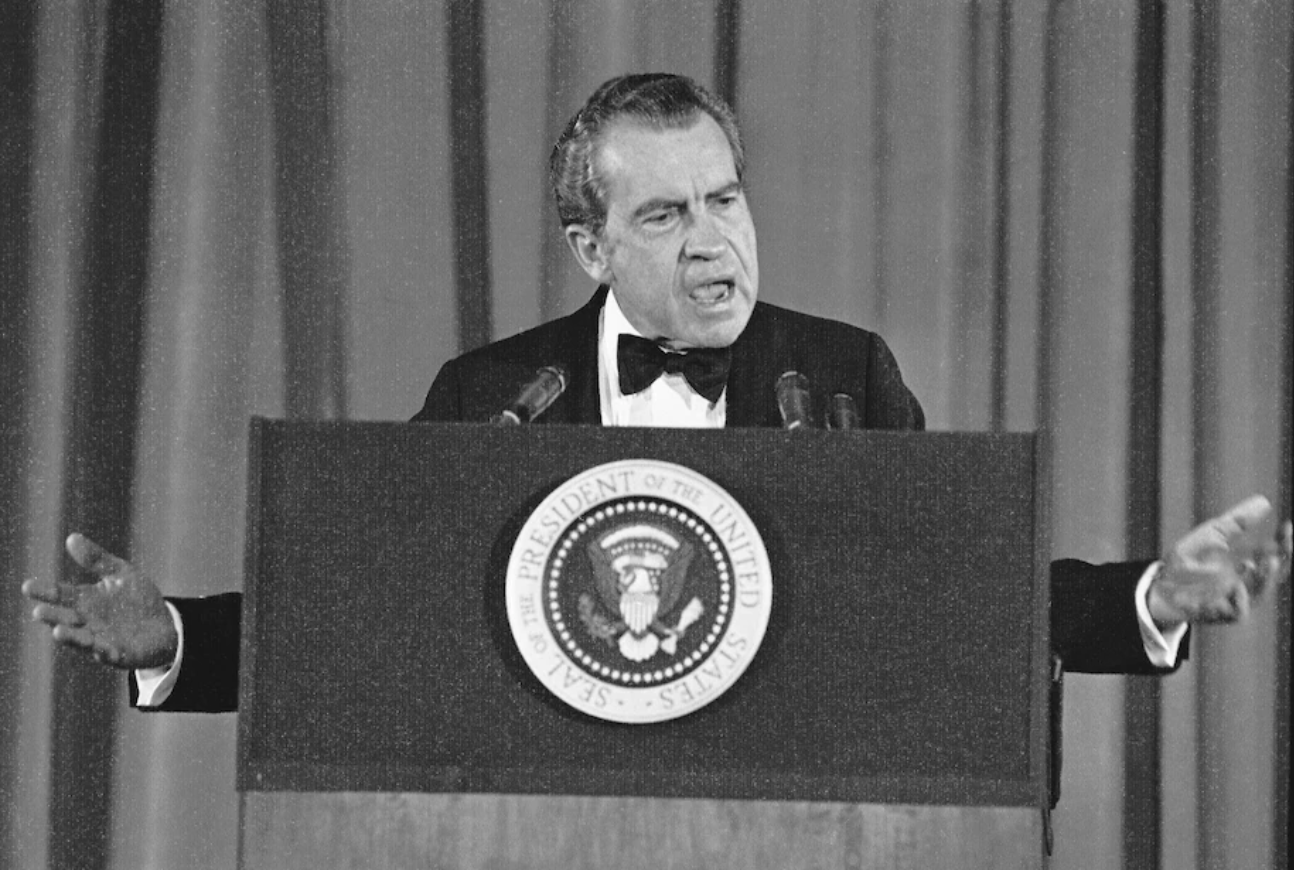
Washington Post
The Washington Post is a major American daily newspaper published in Washington, D.C. It is the most widely circulated newspaper in the Washington metropolitan area and widely read around the country. The newspaper has won 47 Pulitzer Prizes. It employs around 800 journalists and had a 2015 daily circulation of 356,768. Its digital circulation was 1,000,000 in 2018.
Jeff Bezos bought the paper in 2013. Tensions between he and the newsroon have continued; in 2024 and 2025, multiple personnel resigned over the paper's non-endorsement of Kamala Harris and editorial changes advanced by Bezos.
Ellen L. Weintraub is a commissioner on the Federal Election Commission.
The burglars who broke into the Democratic National Committee’s headquarters at the Watergate office complex 50 years ago sparked coverups, investigations, constitutional crises, a presidential resignation, deep damage to Americans’ faith in government and a raft of bipartisan legislation aimed at restoring that faith. One of those laws created a small federal agency to “follow the money,” the Federal Election Commission, where I serve.
Those laws also triggered an almost immediate backlash at the Supreme Court, beginning with its Buckley v. Valeo decision in 1976 and accelerating in recent years. The court’s decision last month in FEC v. Ted Cruz for Senate, which allows donors to slip money directly into an elected official’s pocket, is the latest outrage but likely not the last.
The Watergate players’ actions were brazenly corrupt. When President Richard M. Nixon’s White House counsel, John Dean, told him that money would be needed to pay off the Watergate burglars’ blackmail demands, Nixon replied, “You could get a million dollars. And you could get it in cash. I know where it could be gotten. I mean, it’s not easy, but it could be done.”
It is still shocking to hear a president plotting to raise hush money to cover up political crimes. But the amounts involved seem almost quaint compared with the mammoth sums now flowing into American politics, much of it either legalized or enabled by the Supreme Court.
Donald Graham: Watergate resonated because The Post reported the truth
The court has equated money with speech, struck down political spending limits and empowered corporations. It seems determined to entrench, and frankly celebrate, the might of big donors. That is stunningly out of sync with public opinion — a 2018 Pew Research Center poll found that 77 percent of Americans support limits on political donations.
The Watergate scandal featured large sums of money, much of it in cash, clandestinely raised from individuals, corporate donors and foreign sources, and delivered to Nixon’s political operation. People and corporations were successfully prosecuted for providing these illegal funds.
Today? The delivery of bags of cash to political campaigns remains illegal, as do direct corporate donations to candidates’ campaigns. But in the past dozen years, there has been a proliferation of super PACs so closely associated with candidates that giving to the super PACs affords virtually the same benefits.
Thanks to the court’s 2010 ruling in Citizens United v. FEC, corporations can legally give to these PACs. Individual donors who would be barred from giving $3,000 directly to a candidate’s campaign can legally give millions to a supportive super PAC. And the court insists that this is fine because “independent expenditures, including those made by corporations, do not give rise to corruption or the appearance of corruption.”
In the 2020 election season, federal fundraising totaled more than $14 billion. While substantial sums were raised from small donors, it is now also routine to see individual donors give millions of dollars. And those are just the ones we know about. Contributions to super PACs are required to be disclosed, but sophisticated and secretive donors know they can give to ideologically aligned nonprofit corporations that will pass along their money to the super PACs without revealing the donors to the public. (Politicians presumably know who their benefactors are.) This has contributed to more than $1 billion in dark money flooding America’s politics in 2020 alone.
The FEC has had some success in going after foreign donors, but I remain concerned that foreign money can seep into the system through entities that are domestically incorporated but owned and influenced by foreign nationals.











